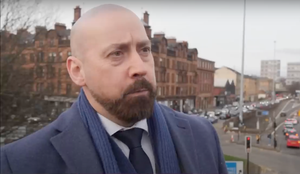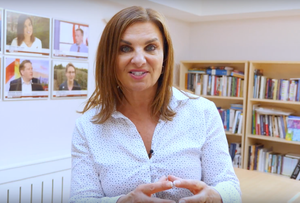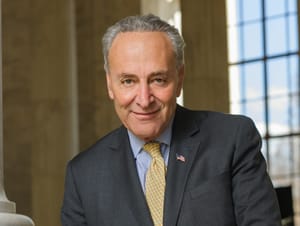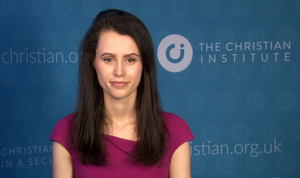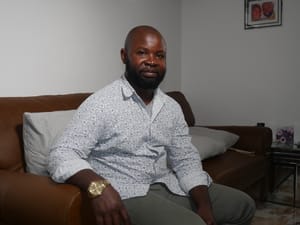Often, in the foggy world of politics, things are not always what they seem. Over the years Northern Ireland has seen many false dawns in the efforts to establish peace between divided communities. Now hopes are high that the latest steps in the peace process will really herald a new day in the politics of the troubled province.
Time will tell, but the signs are good.
Much of the current optimism is down to the resolve of the Rev. Dr Ian Paisley and his Democratic Unionist Party (DUP). Although many reformed Christians have had cause for concern over the years, Dr Paisley’s determination to halt the political machinery of the Northern Ireland Assembly until crucial conditions were met has paid obvious dividends.
He refused to make an agreement that would allow the Assembly to convene until Sinn Fein recognised the province’s police service and system of justice, and until the independent monitoring commission had certified that the IRA’s weapons had been put beyond use.
Resisting government pressure
Stalemate is an incubator for doubt, and over the years some may have given away too much to secure an end to violence. Dr Paisley’s determined resolve – together with his willingness (having achieved his aims) to sit down with erstwhile enemies – have brought about concessions that have made the current situation possible.
Having received the democratic mandate of the electorate, making the DUP the largest single party in Northern Ireland, Dr Paisley was able to make a clear and principled stand in the negotiations.
Since the DUP was the largest party in the Assembly, nothing could move forward until it was satisfied that outstanding issues had truly been resolved. It is to Dr Paisley’s credit that he held firm when lesser politicians might have succumbed to British and
need to rightly fulfil their office. Do they lack wisdom? Ask God to make them wise. Do they lack resolve? Ask God to give them strength.
Praying for our leaders also means remembering their failings as sinful men. Do they need to discover God’s grace? Pray that God will give them eyes to see and ears to hear his truth. If they will not seek God personally, intercede on their behalf, as Job of old interceded with God for his wayward children.
Yet in all these things we are to pray with thanksgiving – something that should characterise all prayers of faith. We pray thanking God for mercy received, while trusting him for all that still remains undone.
Some may find it easier to pray for a Bible believer like Dr Paisley than for others. But Paul tells us to pray for all men. Pray for those who disagree with us, whose history troubles us, whose politics offend us. Pray because we know that whatever his persuasion or politics, ‘the heart of the king is in the hand of God, who turns it wherever he will’ (Proverbs 21:1).
The kingdom of heaven
God is in control. We are not building a kingdom on earth but gathering a people for heaven – and we must pray that the Lord will provide us leaders, whether believers or unbelievers, to facilitate that end.
The people of Northern Ireland have undergone many hardships in recent years. They have known dashed hopes and disappointment. May God provide a period of quiet and peace, that the people may be blessed and the church enabled to worship God, proclaim the gospel, and serve their neighbours in all godliness and honesty.
And let us further pray that in a new time of prosperity the people will not turn aside to materialism and the pursuit of worldly gain. May they rather ‘seek the Lord while he may be found [and] call upon him while he is near’ (Isaiah 55:6).
beginning of a new, violence-free society. Doubtless there will be many political battles ahead, but that is infinitely better than the raw violence that once brought
Northern Ireland to its knees.
Some have criticised Dr Paisley, within his own party and without, for agreeing to sit down in government with those they once branded murderers and
terrorists. But little can be achieved politically in this fallen world unless people of principle are willing to have dealings with such men – once they have renounced violence.
Pray for politicians
The very fact that Dr Paisley’s party must now work with those with questionable backgrounds and different values ought to motivate the rest of us to pray for them. High office is prone to corrupt even the best, and those who bear testimony to saving grace and personal faith in Jesus Christ are not immune from its temptations.
The apostle Paul tells us to pray for those who have authority over us (1 Timothy 2:1). This is the reason why many Christian ministers regularly bring the Queen, government and opposition leaders to mind in public prayer. These are the powers that are ordained of God and it is good that we remember to pray for them – even when they offend us by their conduct (Romans 13:1).
>From a Christian perspective, we have had more reason to lament than to praise our political leaders in recent times. Yet, good or bad, we are enjoined to pray for them. Why? ‘That we may lead a quiet and peaceable life in all godliness and honesty’. The Apostle is teaching us to pray that our leaders may rule in a manner that allows the church to go about its proper business of preaching Christ and practising good works.
With thanksgiving
And notice how we are directed to pray. ‘Supplications, prayers, intercessions, and giving of thanks’ – this covers just about every kind of prayer we can make. We are to pray for our leaders that they might be supplied from above with all they




